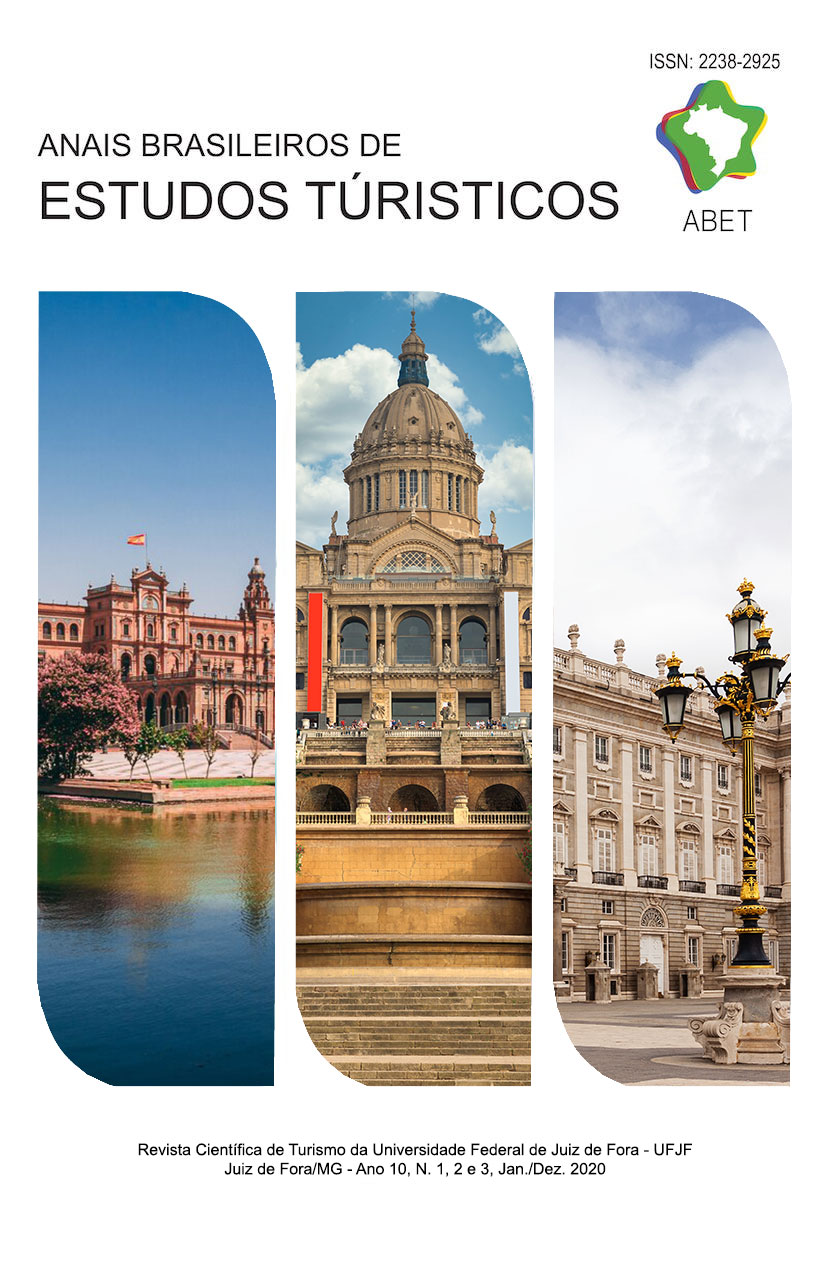Tourism in the Favela of Vidigal: Community based or market based?
DOI:
https://doi.org/10.34019/2238-2925.2020.v10.27307Abstract
This paper had as main objective to analyze critically, by the bias of the community tourism, the intensification of the fluxes and touristic supply that occurred in the favela of Vidigal, located in the South Zone of Rio de Janeiro city, after the occupation of the Unidade de PolíciaPacificadora (UPP) in the year of 2012. From this moment, Vidigal – neighbor favela of Ipanema, Leblon and Copacabana worldwide known as touristic neighborhoods – was a stage of the growth not only of the demand, but also the touristic supplies. Thus, the principal questioning of this research was “would the touristic activity in Vidigal be supported by the principles of Community Tourism?”. To achieve these results, this work was constructed with theoretical references, interviews and field observations, being this paper part of a dissertation. The conclusion obtained in the end of the research points that the tourism in Vidigal is ruled by a Market Logic and even exploratory, differently of its sibling favela “Rocinha”, that is pointed by Freire-Medeiros as Community Tourism Favela model.
Downloads
Downloads
Published
How to Cite
Issue
Section
License
This journal provides immediate open access to its content, following the principle that providing free scientific knowledge to the public provides greater democratization of world knowledge.
Authors must agree to the following terms relating to copyrights:
(a) Authors keep all copyright and grant the to the journal the right of first publication, with the work simultaneously licensed under the Creative Commons Attribution License that allowing job sharing with recognition of authorship of the work and initial publication in this journal.
(b) Authors are allowed to assume additional contracts separately, for non-exclusive distribution of the version of the work published in this journal (e.g. publish in institutional repository or book chapter), with recognition of authorship and initial publication in this magazine.
(c) Authors are allowed and are encouraged to publish and distribute their work online (e.g. in institutional repositories or on your personal page) since they do not do this before or during the editorial process, as this can generate productive interchange, as well as increase the impact and citation of work aired. (See Effect of Free Access).















